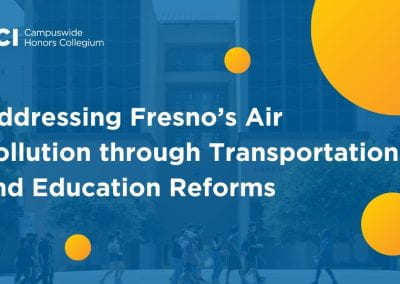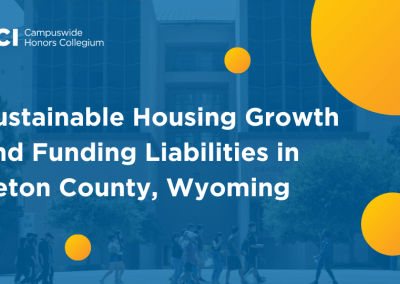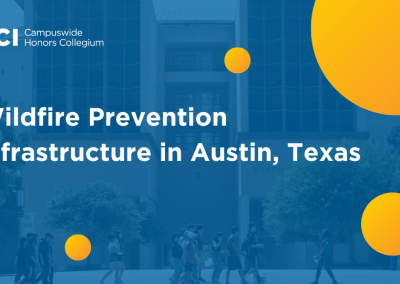Wildfires in Austin, Texas
Abstract
Austin, Texas faces an extreme risk of wildfires–currently ranking fifth in the nation for wildfire danger. Urban development in the city has exacerbated the problem, focusing on deforestation, population growth, and urban sprawl rather than wildfire prevention. Previous research recommends proactive approaches to address the issue’s root causes instead of only dealing with the aftermath. The challenges of wildfire in Austin are linked to climate resilience, water sustainability, deforestation, and urban sprawl. Several solutions are proposed to combat these issues. Firstly, removing invasive species from the community would decrease the fuel available for wildfires and help reintroduce native species. It is the most practical and cost-effective solution. Secondly, rainwater collection can alleviate the strain on water sources during droughts and reduce carbon emissions. There are various options for implementing rainwater collection, providing flexibility to residents and communities. Although it is relatively feasible, it does involve higher costs for those seeking more advanced water collection methods. To fund this solution, Austin Water will request $500,000 for a 50% rebate program. Lastly, incorporating more porous materials into anthropogenic ground cover is presented as a long-term solution. Renovating existing ground cover materials with permeable alternatives allows groundwater replenishment during rainstorms – reducing the burden on the city’s water resources during droughts. However, this solution is the most expensive, with funding of $1,764,998 requested for materials and labor, and it faces socio-political obstacles. Preventing wildfires in Austin requires a comprehensive approach encompassing defensible strategies. By implementing the proposed solutions of removing invasive species, collecting rainwater, and incorporating permeable material, the community can mitigate wildfire risks and address issues related to climate resilience, water sustainability, deforestation, and urban sprawl. Prioritizing these measures is essential for the well-being of Austin’s environment and residents. This proposal requests $2,514,998 in total.



